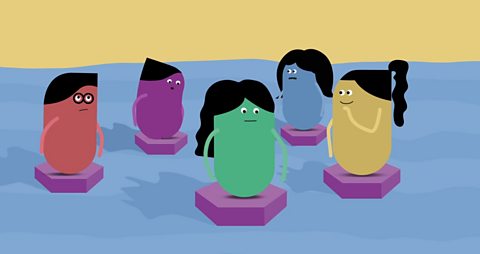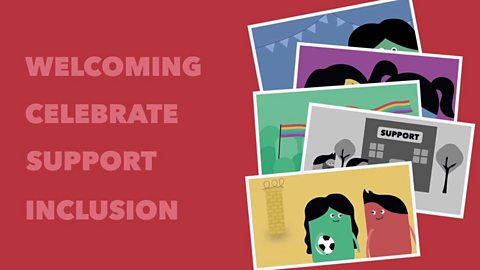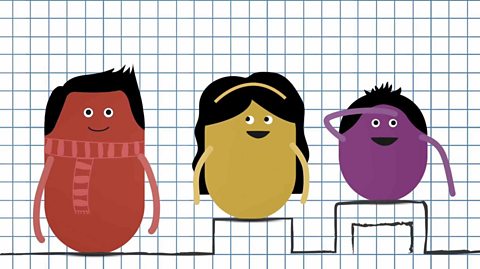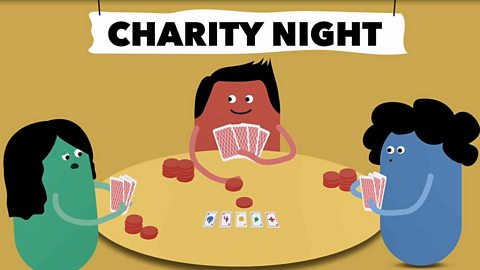What is culture?
Each of us belongs to a culture.
This is a feeling of belonging to a group in society.
Culture is drawn from a number of different influences, including:
- religious beliefs
- age
- gender
- race
- language or dialect
- history
- food
- music
- dress
- festivals and celebrations
Cultural identity
We recognise our cultural identity in the things we share with other people.
Each of us has more than one cultural identity.
You might be a young person from Northern Ireland.
Your grandparents might also be from Northern Ireland, but they are no longer young.
You and your grandparents will identify with slightly different sets of cultural groups.
Location, location, location
Where you live has a big impact on cultural identity because you first learn from your immediate surroundings.
The way we speak is a good example.
Most people in Northern Ireland speak English, but we speak it differently in different places.
Someone from Omagh sounds different to someone from Coleraine.
These accents reinforce our sense of belonging to a particular place.
Family values
Your cultural identity is shaped by your parentsÔÇÖ beliefs and attitudes.
They may take you to a church of a particular denomination, or celebrate particular festivals, such as St PatrickÔÇÖs Day, or the Twelfth of July.
Taking part in these activities shapes your personal beliefs.
Encountering different cultures
Immigration is changing the mixture of people in Northern IrelandÔÇÖs population.
Today our communities are home to people from a variety of other countries.
This is making our society much more diverse.
Diversity is many different cultures living within society.
Immigrants arrive in Northern Ireland from countries such as:
- Poland
- Lithuania
- Romania
- China
- The Philippines
- India
Living with diversity
The benefits of living in a diverse society are:
- it promotes tolerance and understanding between different cultures;
- it enriches our community through shared experiences with different people;
- it attracts more money to our economy through the growth of different businesses;
- it relieves skills shortages as 4 per cent of Northern IrelandÔÇÖs workforce is made up of migrants ÔÇö many of our doctors and nurses were born overseas.
More on Local and global citizenship
Find out more by working through a topic
- count2 of 5

- count3 of 5

- count4 of 5

- count5 of 5
